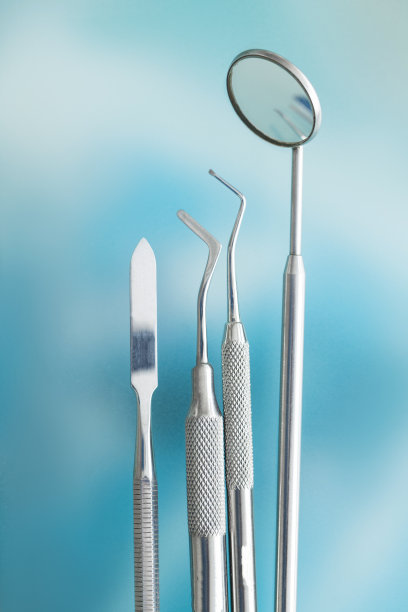Summary: Dental implants have transformed the landscape of oral health, providing a durable and aesthetic solution for tooth loss. This comprehensive guide delves into the numerous benefits associated with dental implants, outlining the treatment process, recovery tips, and essential aftercare for achieving a healthier smile. Whether you are considering getting implants or looking for ways to enhance your oral health, this article is designed to equip you with the knowledge necessary for informed decisions and better oral hygiene practices.
1. Benefits of Dental Implants for Oral Health

Dental implants offer a myriad of benefits that extend beyond mere aesthetics. One of the most significant advantages is their ability to prevent bone loss, which commonly occurs after tooth loss. When a tooth is missing, the bone that once supported it begins to deteriorate due to lack of stimulation. Implants function as natural tooth roots, stimulating the jawbone and preserving its density.
Another key benefit is improved oral functionality. Dental implants restore full chewing ability, allowing individuals to enjoy a diverse range of foods without discomfort or limitations. Unlike dentures, which can slip or cause irritation, implants are securely anchored, offering enhanced stability and comfort in everyday activities.
Moreover, dental implants contribute positively to overall oral health. They do not rely on adjacent teeth for support, unlike bridges, thus preserving the integrity of surrounding teeth. This factor reduces the risk of future dental problems and promotes long-term oral wellness.
2. Understanding the Dental Implant Procedure
The dental implant procedure involves several well-defined steps, beginning with a comprehensive dental evaluation. During this phase, the dentist assesses the patients oral health, which may include X-rays and a thorough examination of the gums and bones to determine the best approach for the implants.
Following the evaluation, the surgical placement of the implant is undertaken. This usually requires local anesthesia to ensure comfort for the patient. The dentist places a titanium post into the jawbone, which serves as the new tooth root. After this procedure, a healing period is essential, typically spanning three to six months, during which the bone integrates with the implant.
Once the implant is securely anchored, the next phase involves attaching a custom-made crown that matches the surrounding teeth. This final step enhances not only functionality but also improves the aesthetics of the smile, completing the restoration process.
3. Recovery: What to Expect After the Procedure
Recovery after dental implant surgery plays a crucial role in the success of the procedure. Initially, patients may experience swelling, discomfort, and minor bleeding. It is vital to adhere to post-operative care instructions provided by the dentist, which often include recommendations for pain management and diet modification.
During the first few days, soft foods are recommended to ease the strain on the surgical site. Gradually, as healing progresses, patients can reintroduce harder foods into their diet. Staying hydrated and maintaining oral hygiene are also essential components of a smooth recovery, as they can significantly reduce the risk of infection.
Regular follow-up appointments with the dentist are necessary to monitor the healing process. These visits ensure that the implant integrates well with the bone and help address any concerns early on, paving the way for a successful outcome and a lasting solution to tooth loss.
4. Aftercare Tips for Long-lasting Results
Aftercare following the dental implant procedure is crucial for longevity and optimal health of the implant. Maintaining good oral hygiene habits, such as brushing twice a day and flossing daily, is essential in preventing plaque buildup and maintaining the health of gums surrounding the implant.
It is also advisable to regularly visit the dentist for routine check-ups and professional cleanings. These regular visits allow for early detection of potential issues, which can be addressed promptly, ensuring the implant remains in good condition.
A balanced diet rich in vitamins and minerals can further support gum health and overall recovery. Limiting sugary foods and beverages also reduces the risk of complications and promotes a healthier oral environment.
Summary:
Dental implants pose a remarkable solution for individuals seeking to enhance their oral health and smile aesthetics. With benefits ranging from improved functionality and prevention of bone loss to a thorough understanding of the procedure and essential aftercare tips, patients can achieve satisfying outcomes. Make an informed decision by exploring your options for dental implants, and enjoy the benefits of a healthier smile.
This article is compiled by Vickong Dental and the content is for reference only.
Vickong Dental
Vickong Dental is a large medical group established in Hong Kong in 2008 by professors from well-known medical universities in Guangdong and Hong Kong, as well as medical doctors from key national '985' universities (including Master's supervisors and senior professors). The chain of branches brings together expert dentists with PhDs and Master's degrees from Hong Kong and Mainland China, committed to providing high-quality dental treatment.
"Vickong Dental Practices the University Motto of 'Healing and Serving Society,' with a Stable Operation for Sixteen Years. It Has Been honored with Hong Kong Enterprise Leaders's Choice,' and is a Global Trusted Implant Center for the Nobel Implant System. Recommended by Hong Kong Metro Broadcast and Guangdong Television, it Serves Customers from Over Thirty Countries and Regions, Gaining the Trust and Favor of Citizens from the Guangdong-Hong Kong-Macau Greater Bay Area and Surrounding Cities.

Thousands of customers' unanimous praise
The most recognized and highly recommended dental service by customers in the Guangdong-Hong Kong-Macau Greater Bay Area
We Ensure You Receive Detailed Care and Attention Here
Hong Kong standards, Shenzhen prices, Your Trusted English-speaking dentists

Vickong Dental Medical-Grade Instrument Disinfection Process
Vickong Dental Medical-Grade Instrument Disinfection Process

Vickong Dental Chain: A Warm and Comfortable Environment for Treatment






Appointment Hours

Q&A
Why choose Vickong Dental?
Vickong Dental practices the university motto 「Medicine to Benefit Society」, with each branch bringing together highly qualified dentists with doctoral and master’s degrees from Hong Kong and the Mainland, and has maintained seventeen years of steady operation。Recipient of 「2024 Hong Kong Enterprise Leaders Brand」, 「2025 Hong Kong Enterprise Leaders Brand」, a Nobel Biocare Global Trusted Implant Center, and a brand recommended by Metro Radio Hong Kong and Guangdong TV。
To date, we have served customers from more than thirty countries and regions,earning exceptionally high word-of-mouth recognition and trusted recommendations from residents across the Guangdong-Hong Kong-Macao Greater Bay Area and surrounding cities
We have eight major branches in Zhuhai、Shenzhen,and a consultation and service assurance center in Hong Kong,so you can book a free consultation at any time for any questions,which is very reassuring.
If I do not accept the quotation after the CT scan, will I be charged??
No! As long as the actual treatment has not started, you will not be charged any fees.
Will there be any additional charges during the treatment process?
No, there won’t be any additional charges. Before treatment begins, we will clearly explain the treatment plan and its corresponding fees. Only after the patient agrees and signs the consent form will we proceed with the dental service.
Can I pay in Hong Kong dollars?
Yes. Vickong Dental accepts payment in Hong Kong dollars. The amount will be converted based on the exchange rate of the day, and the applicable rate will be clearly communicated to you in advance.
Can I reschedule my appointment at any time?
Yes. Please contact us via **WeChat** or **WhatsApp** as early as possible, providing your original appointment time and details, along with your preferred new date and time slot for rescheduling.













